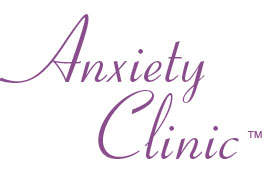Panic Attack Treatment & Recovery
Panic attack treatment is essential for recovery. Whilst many people try to 'go it alone' using well-meaning but ultimately unhelpful advice - they do not recover from their panic attacks. With this in mind, it is important to understand there is a huge difference between dealing with panic attacks (day by day) and fully recovering from panic attacks so they no longer occur. On this page we'll discuss in detail how the correct specialised treatment will rid you of your panic attacks for good and bring you long term recovery.
Dealing With Panic Attacks vs Panic Attack Treatment...

Dealing with panic attacks can take many forms and varies from person to person. We'll consider the most common ways people tend to deal with their panic attacks and explain briefly why such methods do not work long term.
The most common trait of all sufferers is following their first panic attack, they overly focus on trying to avoid having another. Whilst this is instinctive it is also a pivotal step in setting up a panic attack cycle which will repeat over and over. The reason is that panic attacks are created by excessive stress and anxiety, yet this is precisely what is caused by focusing on (and living in fear of) having another panic attack. Thus, what you actively try to avoid in your mind - you actively invite through your thought processes and associated emotional stress and anxiety. Once this cycle is up and running, getting out of it is almost impossible without specialised help.
Another common trait of sufferers is to set up avoidance strategies in order to 'prevent' another panic attack. Once again this is an instinctive step to take for most people, but as above it contributes to inviting more panic attacks rather than preventing them. Let's assume Michelle has experienced a panic attack whilst on her bus ride to work one morning. It would be natural (but inaccurate) for Michelle to assume the panic attack was caused or at least 'triggered' by the bus ride. Thus Michelle may try to rationalise that if she rides the bus tomorrow it may trigger another panic attack - whereas if she avoids the bus she should also avoid a future panic attack. Michelle decides to walk to work instead and although it takes her the best part of an hour in the rain, she has no panic attack. This seems proof enough to Michelle that the bus was indeed the trigger for her panic attack and she must avoid them at all costs in the future.
However, a week later Michelle has another panic attack but this time in the supermarket. She rationalises that it must be the supermarket that triggered the panic attack so she decides to avoid that place in the future. Although this may seem quite harmless initially, as time passess and the number of places Michelle must avoid increases, the restrictions upon her life become very stressful. The more stressed Michelle becomes, for example at having to walk to another supermarket two miles further away and then having to physically carry her groceries home because she can't use a bus, the more likely it is she will have yet another panic attack. The next panic attack will stop her from going to yet another place or doing another thing and her options shrink once more. The more her options shrink, the tougher her life becomes. The tougher her life, the more stress she has. The more stress she has, the more panic attacks she experiences. The more panic attacks she experiences, the more her options shrink... and the cycle runs again.

The third trait is that sufferers use distraction or suppression techniques in an attempt to prevent an impending panic attack. These 'techniques' are limited only by your imagination and all are ultimately useless in terms of recovery - they only serve to 'deal with existing panic attacks' and don't do that particularly well. Typical examples are to breathe into a paper bag, hold your breath, switch on the TV, drink a glass of cold water, count slowly to ten, click your fingers, tell yourself you're safe, write your experiences in a journal, phone a friend... and the list goes on. The trouble is that none of these distraction or suppression techniques addresses the underlying cause of the panic attack - they all work along the lines of closing the stable door AFTER the horse has bolted. In terms of recovery, they are all utterly useless.
The fourth and final method we'll outline is the use of medication. The truth is (and feel free to confirm this with your GP) - medication will never cure panic attacks, stress or anxiety. Medication is only designed to temporarily suppress the worst of the unpleasant symptoms. The obvious pitfall here is that if you start taking medication for panic attacks you may well feel better over the short-term. This means that you assume your 'problem' is fixed and all is well. However, in reality all that has happened is that the symptoms have been temporarily artificially (chemically) suppressed BUT the underlying problem which causes your panic attacks is still running strong in the background. When you become accustomed to the medication and the effects wear off, the panic attacks will hit you with a vengeance.
Thus, medication is merely a temporary suppressant and is not the same thing as recovery. If you're currently taking medication, that's OK we can still work with you and help you to recover properly. Once the underlying problem has been correctly addressed, you can approach your GP with a view to coming off the medication because you'll no longer need it.
So, we've discussed what doesn't work and the main reason for failure in each case is that none of the 'go it alone' techniques address the underlying problem which causes the panic attacks in the first place. Rather they represent a combination of avoiding, distracting and suppressing symptoms, which as we say is about as useful in terms of recovery as closing the stable door after the horse has bolted. Genuine recovery treatment works differently because it addresses the underlying cause of the problem and removes the requirement of panic attacks from the sufferers life. If there are no panic attacks, there are no symptoms to dodge and no reason to live in fear. So basically we set up a different self-perpetuating cycle with no panic attacks, no fear and no need to live a life of avoidance. Is this what you want?
How Does Panic Attack Treatment Work At The Anxiety Clinic?

The first thing you need to realise in order to understand how we can help you, is that your emotions (including anxiety and stress) are generated internally by your thought processes. Thus even though you may be 'responding' to something on the outside (like a rude shop assistant) it is your thought processes alone that generate the feelings inside.
In the case of the rude shop assistant you may feel upset, angry, offended or perhaps even embarrassed. It is instinctive for us as humans to 'assume' we feel the way we do 'because' of the way the shop assistant has dealt with us. Basically we believe how we feel is dictated by what happens on the outside. However, this is NOT how it really works. The way you feel is generated by your 'perception of the situation' which is driven purely internally by the thought processes taking place in your mind at the time.
If you doubt this run through an example from your own life and PROVE IT to yourself. Think back into the past about a time when you were really angry about something and remember vividly what happened as though you were there again. Take a moment to do that before reading on.
Now imagine an unpleasant scenario in the future, perhaps having a full blown panic attack in a very public place, being unable to escape and having lots of people watch you go through a melt-down. Imagine that happening in as much detail as you can before reading on.
OK - so you have two examples from your own life to play with. When you recalled your angry memory - did you feel at least a little angry (or maybe even guilty now if you've used the benefit of hindsight)? In reality, right here right now there's nothing to MAKE YOU feel angry or guilty happening on the 'outside' so those emotions must be generated internally.
In your second example where you imagined having a very public panic attack, did you feel anxious, fearful or embarrassed? The incredible thing here is that you even made that example up - it was pure fabrication. Yet you still felt an emotional response to it because your emotions are driven purely by your thought processes... not by external events, situations or people. Are you starting to grasp this now?

We all know that computers run software (programs) in order to work and we run something surprisingly similar as humans. At the Anxiety Clinic we call it 'emotional software' and this is precisely what is to blame for your panic attacks. Our emotional software runs automatically in the background and generates emotional responses to what we 'perceive' to be outside events, situations and other people. Ordinarily our emotional responses are essential in making decisions, understanding how we relate to situations and people and also in a crisis they can keep us alive. However, when things go wrong with emotional software, such as a rogue program - life can rapidly become full of fear, anxiety and misery.
Emotional software runs in the background, on auto-pilot for the vast majority of people. It is filtered out of your normal attention which allows it to run automatically and remain unquestioned. Thus even though you can rationalise that you hate living in fear and with high anxiety levels - if your emotional software keeps on running the same processes... you'll get the same emotional responses over and over. This is why you are trapped in a cycle that rationally speaking makes no sense.
Thus what needs to happen is for you to learn how this emotional software is keeping your panic attack cycle running and then (with our expert help) make the changes needed to break that cycle. This is essentially addressing the root cause of not only your panic attacks, but also the stress and anxiety which creates them. Perhaps the ultimate kick in the teeth for a panic attack sufferer to realise is that emotional software is really easy to understand and change. A typical client can master everything they need to know in around six to eight hours of Consultation time over several weeks.
Changing emotional software is fast too - it actually works in 'real time' so there is no waiting around for results. Making a change to a rogue program can take from a matter of seconds to a couple of minutes depending on what technique you use, but the change in the way you feel is instant. It's like changing the font style or colour on your computer - when you click the button the change happens immediately. This is leading edge stuff and we'll prove it to you.
How To Get The Panic Attack Treatment You Need...

Getting the panic attack treatment you need couldn't be easier. We have several options for you to choose from:
The first options are working with us via either Telephone or Webcam, so no matter where you are located in the UK we can work together. Our fees for these sessions are flat rate at £69.00 per hour. We suggest one such session each week for six to eight weeks for an average panic attack sufferer to recover.
The next option is to work with us face to face at our established Clinic in Stoke on Trent, Staffordshire. You'll work with the same Consultant's you would over the phone or by webcam - but if you can travel to the Clinic in person we'd suggest you do so. You really can't beat being in the same room as your Consultant.
Face to face Consultations are fixed rate at £95.00 but the sessions are longer at 90-minutes each.
We also offer a Zero Risk Initial Consultation, where you only pay if you decide to continue working with us. If for any reason you decide what we do isn't for you - your Initial Consultation wont cost you a single penny and you'll have lost nothing. Effectively the only thing you stand to lose by trying us out are your panic attacks.
Choose from the following options for more information on:
A Risk Free Telephone / Online Consultation (UK Only)
A Risk Free Face To Face Consultation at the Anxiety Clinic (Stoke on Trent)
Alternatively if you'd prefer to talk to a Consultant and discuss your case and options, you can contact us on 01782 855585, from 11am to 9pm, seven days a week.




